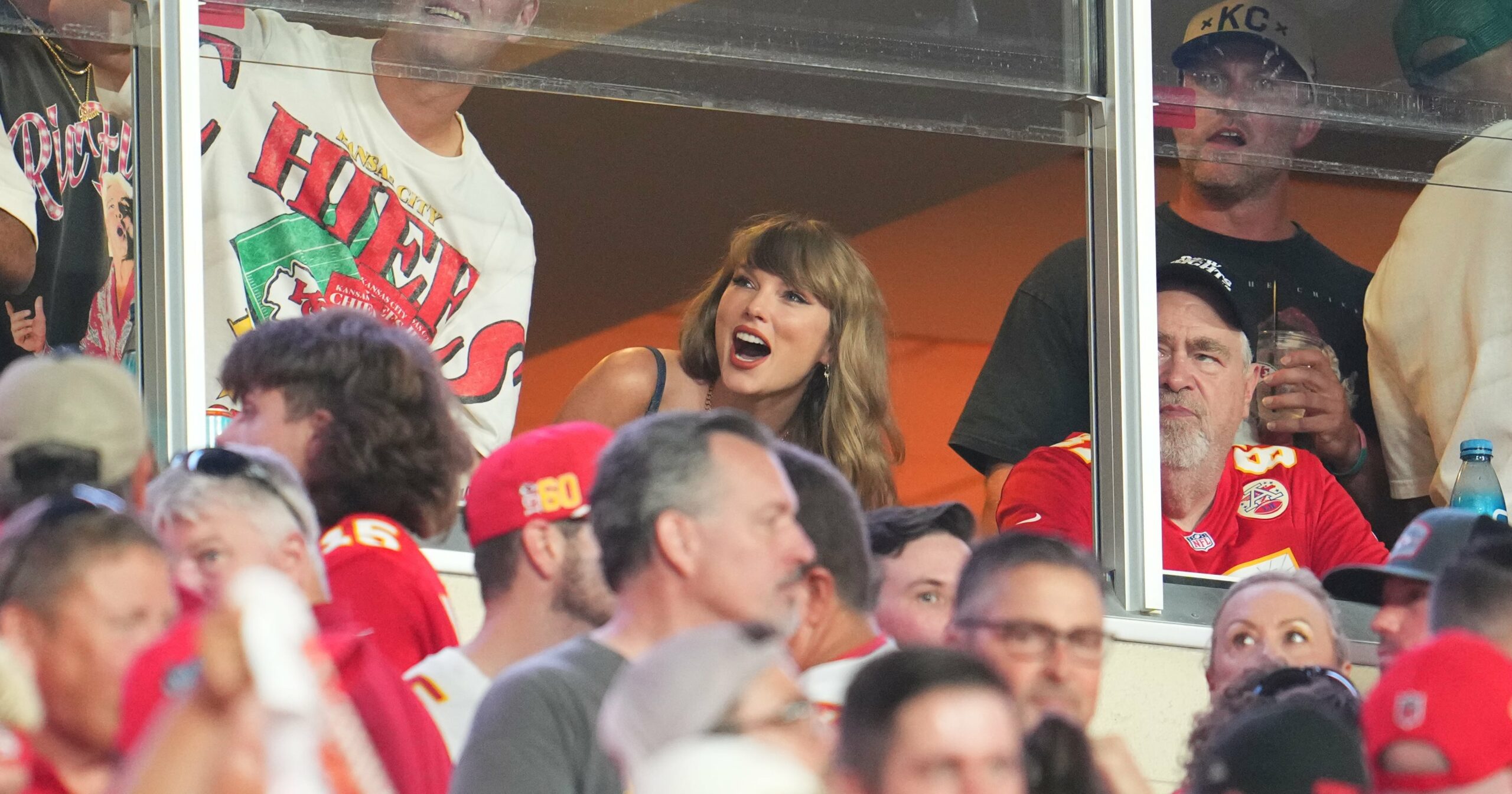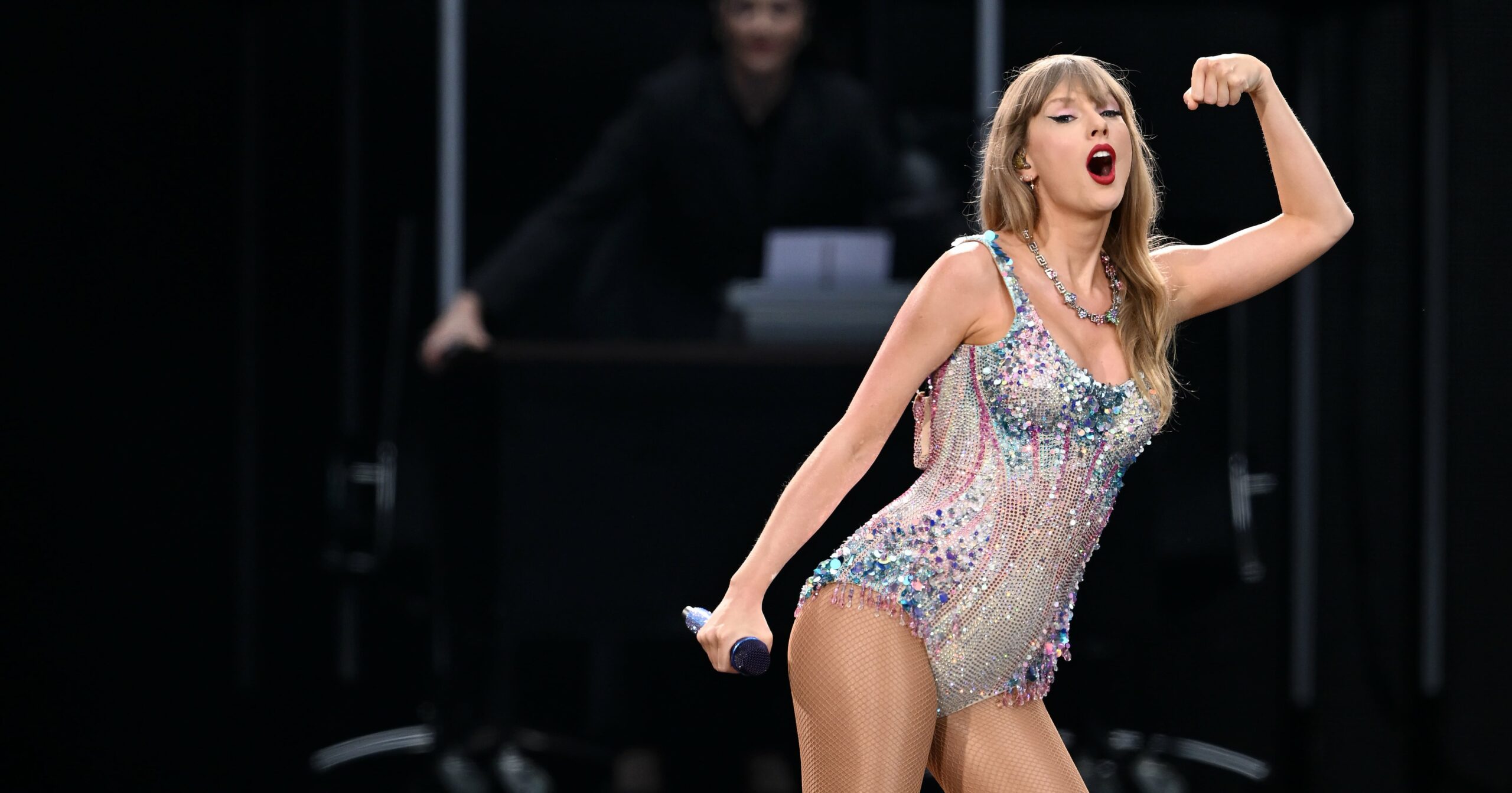With the Super Bowl quickly approaching, stress for sports fans is piling up. As any sports fan knows, experiencing intense emotions and anxiety while watching a game is the norm – in fact, it’s even exhilarating. Every week can feel like a roller coaster. Just ask Taylor Swift, who has helped bring awareness to a concerning skin-care phenomenon: “fanxiety face.”
Fanxiety face involves unknowingly and habitually making severe facial movements as a reaction to excitement or anxiety as you cheer on your favorite team or player. Beyond the internal manifestation of spectator stress, it can also have lasting effects on your skin. Below, we break down what fanxiety face is – and whether it’s something you actually have to be concerned about.
Experts Featured in This Article
Angela Brimhall, DO, is a board-certified holistic dermatologist and owner of Sage Dermatology.
Muneeb Shah, MD, is a board-certified dermatologist and founder of Remedy Skin.
Jaimie Glick, MD, is a board-certified dermatologist in New York City.
What Is Fanxiety Face?
Coined on social media, fanxiety is the anxiety associated with the intense emotions that come along with being a sports fan, which can lead to fanxiety face. The viral term describes the signs of facial tension that arise during particularly intense moments, such as watching a sporting event. “It refers to the involuntary muscle tension, frowning, wrinkling, and skin puckering that can occur when a person experiences anxiety or stress,” board-certified holistic dermatologist Angela Brimhall, DO, says. “If experienced over and over again, it can even lead to premature signs of aging and exacerbate existing skin conditions.” Fanxiety face typically affects the forehead, including the glabella (aka 11 lines), the area around your eyes where crow’s feet can become more pronounced, and also areas surrounding your mouth “where stress can lead to tightness that may create marionette lines,” adds Dr. Brimhall.
What Causes Fanxiety Face?
While the term is cute and catchy, the effects of fanxiety face are not. “The emotional stress and anxiety experienced during high-stakes games often trigger it,” says Dr. Brimhall. Continuous exposure to intense emotions while cheering on your favorite sports team and engaging in intense facial movements causes the deepening of fine lines and wrinkles, says board-certified dermatologist Muneeb Shah, MD.
If you’re constantly furrowing your brows, engaging in intense concentration, and tightly pursing your lips in a state of stress, it can contribute to fine lines and wrinkles over time. “The body responds to stress by releasing cortisol, leading to inflammatory skin complications,” says Dr. Brimhall.
Your age and the condition of your skin, such as laxity and collagen levels, can be important factors in whether or not your fanxiety will actually cause fanxiety face. “It’s less about a timeline of developing fanxiety face and more about the age one is experiencing expression lines. Starting around your mid-20s, your skin can’t recover as quickly as it once could. The more you make that face, the more likely it is to remain llike that,” Dr. Shah says. Keep in mind that sun exposure, skin color, muscle strength, and facial structure also determine how wrinkles will form, says board-certified dermatologist Jaimie Glick, MD.
How to Prevent Fanxiety Face
The onset of fanxiety face varies greatly from person to person. Sure, turning off the game can help, but let’s get real: participating in a sporting event from the sidelines is both thrilling and invigorating. Who wants to give that up for a few wrinkles? There are less severe things you can do than go cold turkey on your favorite team.
“Prevention is key, especially during game time,” says Dr. Brimhall. “Engaging in simple facial massages can help alleviate tension. I recommend techniques like gentle circular motions on the forehead and temples and light tapping around the eyes and eyebrows to promote relaxation [during the game].” Dr. Shah says that being aware of your facial movements and actively trying to avoid repeated contractions, such as squinting while feeling anxious, can prevent lines from deepening and wrinkles from forming.
Perhaps your best line of defense (pun much intended) is being proactive with preventative treatments and skin care. “Botox or similar products like it – Dysport, Xeomin, Jeuveau, and Daxxify – is one of the best ways to prevent the formation of frown lines,” says Dr. Glick. Adding chemical peels, laser resurfacing, and microneedling can also help to rejuvenate and address damage over time, says Dr. Brimhall.
Lastly, Dr. Brimhall recommends practicing mindfulness, especially when the stakes are high. “Incorporating relaxation techniques, such as deep breathing or even short, meditative breaks during games, can help mitigate the physical manifestation of anxiety. Taking care of your mental health is just as important as your skin-care routine.”
Taryn Brooke is a beauty writer and editor born and bred in New York City who has been in digital media for over 10 years. She is a contributing beauty writer for PS, Allure, Byrdie, and Well+Good.




